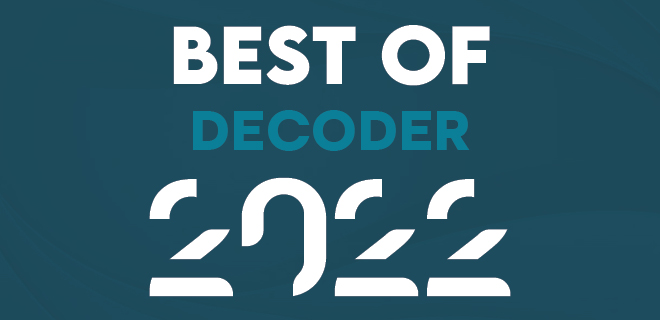
The ad tech industry is constantly evolving. New terms and practices pop out of the woodwork every couple of business days and sometimes it’s hard to keep up. That’s why we created Decoder.
Decoder is AdMonsters explainer series. Are you looking for a better understanding of Data Clean Rooms? Do you need a refresher on Seller Defined Audiences? Is the evolution of Web3 hard to wrap your head around? If so, this series is for you.
In 2022, we covered topics ranging the spectrum of privacy regulations, retail media networks and the most efficient ways to create unique identifiers for consumers. Let’s look back on the hot topics and the most Googled terms that kept the industry buzzing this year.
What Is a Data Clean Room?
Privacy-centric audience targeting and data collection is the law of the land now. Consumers created an uproar because the advertising ecosystem was not transparent about their data collection practices. Global regulators, the US government and big tech stepped up to change all of that, and publishers and advertisers started taking initiative to make drastic changes.
In consequence, data clean rooms emerged. Lauded as the future of data collaboration, a data clean room is a secure, protected environment that enables two or more parties to bring data together for joint analysis with privacy, security, and governance rules in place. Read more.
What are the Top 10 Alternative ID Solutions and How Should You Use Them?
The next phase of data collection standards are well under way. One of the more widely adopted solutions are Alternative IDs. These identifiers are privacy-focused and give publishers access to first-party data that is volunteered by the consumer.
Our top 10 included solutions such as ID5 and Unified ID 1.0, but we implore you to research the IDs that work best for your business. How alternative IDs work in practical use cases is still up for debate, but with proper experimentation and partnership, the ability to achieve advertiser KPIs and fulfill publisher revenue goals is likely. Read more.
What Is Retail Media Advertising and How Does it Benefit the Ad Tech Industry?
Now that third-party cookies are slowly fading away, attribution and measurement have become critical concerns for the advertising ecosystem, especially for advertisers and publishers. Retail media is stepping up to close the loop, linking ad impressions directly to consumer shopping behaviors, building bridges with publishers to drive engagement and increase sales, and proving performance beyond CTRs.
What’s more, retail media is privacy safe and predictions suggest that US Retail Media Networks will exceed $52 billion in ad sales by 2023. Read more.
What Is Google Topics API?
At the start of the year, Google launched Topics, a Privacy Sandbox initiative they believe can power interest-based targeting in Chrome when third-party cookies are phased out.
The tech company marketed Topics as the next phase of their cookie replacement when they finally turned them off in Chrome. Read more.
What Is Seller Defined Audiences?
I don’t even have to ask if you have clicked onto a website and were immediately bombarded by a cookie notification. It has happened to the best of us.
With cookie depreciation nigh, the ad tech industry is worried about the future of data accessibility. IAB Tech labs’ first born, Seller-Defined Audiences (SDA), is being lauded by many as that solution. SDAs are a strategy for communicating first-party audience information without disclosing user identity. Read more.
What Is the Competition and Transparency in Digital Advertising Act?
Bills, Bills, Bills.
I’m not referencing the classic Destiny’s Child track. I’m referring to the string of privacy bills proposed by the U.S. federal government this past year.
In May, the Competition and Transparency in Digital Advertising Act was spearheaded by Sen. Mike Lee ( R- Utah) and co-sponsored by Amy Klobuchar (D-Minn.), Ted Cruz (R-Texas), and Richard Blumenthal (D-Conn.). As written, the bill would include stipulations contributing to the breakdown of Google’s monopolistic ad tech model. Read more.